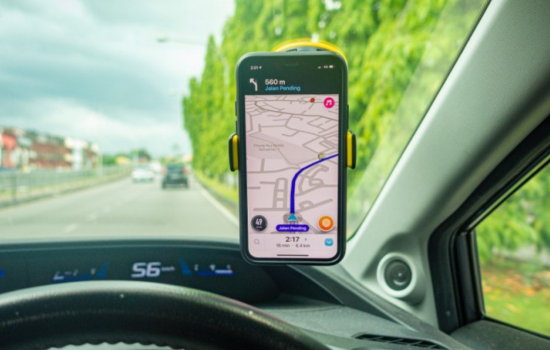Advertisements
Mastering English has become an essential skill in today's globalized world. With the advancement of technology, learning this language can be a much more dynamic and enjoyable experience.
Instead of traditional methods that often prove boring, learning apps offer a practical and interactive approach, allowing learning to take place in a fun and efficient way.
In this text, we will explore the best applications available on the market, which have won over users due to their effectiveness and innovation.
Each of these tools is designed to suit different learning styles, from those who prefer a more playful approach to those who seek a more structured experience. The variety of features, such as games, interactive exercises and audio lessons, make learning English an engaging journey.
See also
- Turn your old phone into a powerful machine with the new 5G app
- Guide to the best driving apps
- Unraveling the Mysteries of the Beyond
- Uncover your past with these apps
- Discover the best apps for 5G!
The best apps for learning English
1. Duolingo
Duolingo is one of the most popular apps for learning languages, and it’s no wonder. With its gamified approach, the app turns learning into a game, where you can accumulate points, unlock new levels, and even compete with friends. The variety of exercises includes reading, writing, listening, and speaking, allowing for a well-rounded learning experience.
Duolingo's interface is user-friendly and intuitive, making it easy to navigate. In addition, the app offers the possibility of learning at different difficulty levels, suitable for beginners and advanced learners. The reminder system also helps to maintain consistency in studies, essential for any learner.
2. Babbel
If you're looking for an app that focuses on conversation, Babbel is an excellent choice. With short, objective lessons, Babbel focuses on practical conversations and everyday situations. The idea is to help students communicate from the very beginning.
Advertisements
Babbel uses a method based on spaced repetition, which helps to retain the content more effectively. In addition, the app offers the possibility of practicing pronunciation with speaking exercises, which is essential to gain confidence when communicating in English. The courses are organized by themes, making it easier to find specific topics of interest.
3. Memrise
Memrise combines language learning with memorization techniques. The main focus is to help users expand their vocabulary through flashcards and repetition. The app also offers videos of native speakers, which allows you to hear different accents and pronunciations.
Memrise’s gamification mechanics encourage daily learning, with rewards for completing lessons and challenges. Plus, the active community allows users to share tips and experiences, making learning collaborative and fun.
Learning in a fun way
4. Busuu
Busuu is an app that not only offers English lessons, but also the opportunity to practice with native speakers. Through an integrated social network, users can interact and correct each other's exercises. This provides a richer and more dynamic learning experience.
Busuu lessons are structured to cover a wide range of topics, from grammar to specific vocabulary. The app also allows you to customize your study plan, focusing on the areas that need the most attention. Audio exercises are a great way to improve listening comprehension and pronunciation.
Advertisements
5. Rosetta Stone
Rosetta Stone is one of the most traditional names in language learning, and its app reflects the quality of its method. The app is designed to mimic the way we learn our native language, through total immersion. This means that when you use Rosetta Stone, you will be exposed to English from the very first moment, without translations.
The lessons are interactive and engaging, using images and sounds to teach new vocabulary and grammar structures. The app also offers speaking exercises that use speech recognition technology to help users perfect their pronunciation.
Tips for maximizing the use of applications
1. Establish a routine
For English learning to be truly effective, it is essential to establish a study routine. Set specific times to use the apps and stick to that schedule. Consistency is key to retaining information and progressing in your learning.
Try to dedicate at least 15 to 30 minutes a day to studying English. Regular practice is much more effective than long, sporadic sessions. Take advantage of the reminders that some apps offer so you don't forget to study.
2. Combine different applications
Each app has its own particularities and focuses. Therefore, an effective strategy is to combine the use of different platforms. For example, you can use Duolingo to expand your vocabulary and Babbel to practice conversation. This diversified approach will enrich your learning and make it more interesting.
Additionally, by using different apps, you can expose yourself to a variety of teaching methods, which can help you find what works best for you. Variety prevents monotony and keeps learning exciting.
3. Practice speaking
An essential part of learning a new language is practicing speaking. While many apps offer pronunciation exercises, it’s important to supplement this with real-life conversations. Try to find conversation partners, either online or in person, to practice what you’ve learned.
Platforms like Tandem or HelloTalk allow you to chat with native speakers who want to learn your language. This cultural exchange is an incredible opportunity to improve your fluency and gain confidence when speaking English.
Other useful tools for learning English
1. Podcasts and audiobooks
Podcasts and audiobooks are valuable tools for those who want to improve their listening comprehension. There are several podcasts aimed at learning English, with different themes and levels of difficulty. Listening to conversations in English will help accustom your ear to the language, as well as expanding your vocabulary.
Choose a podcast that interests you and listen to it while you do other activities, such as working out or cooking. This can be a great way to integrate learning into your daily routine, making it less boring.
2. Videos and series in English
Watching videos and TV shows in English is a fun and effective way to learn. Try watching content with English subtitles, as this will help you associate the spoken words with their written form. Exposure to different accents and speaking styles will enrich your understanding of the language.
If you are already at an intermediate level, you can try watching without subtitles to test your comprehension skills. This practice also helps you develop the ability to understand the context of faster, more natural conversations.
3. Reading books and articles
Reading is one of the most effective ways to expand your vocabulary and improve your grammar. Choose books, articles, or blogs that interest you and start reading them in English. This will not only help you improve your reading skills, but it will also help you learn new words in real-world contexts.
You can start with simpler books, such as children's literature, and gradually move on to more complex material. Make notes of new words and expressions that you encounter and try to use them in conversation or writing.

Conclusion
In conclusion, mastering English in a practical and efficient way is a completely achievable goal, especially with the variety of applications available on the market.
Through platforms like Duolingo, Babbel, Memrise, Busuu, and Rosetta Stone, you can transform learning into a fun and dynamic experience. In addition to learning in a light way, these apps offer methods that can be adapted to your lifestyle, allowing you to study wherever and whenever you want.




